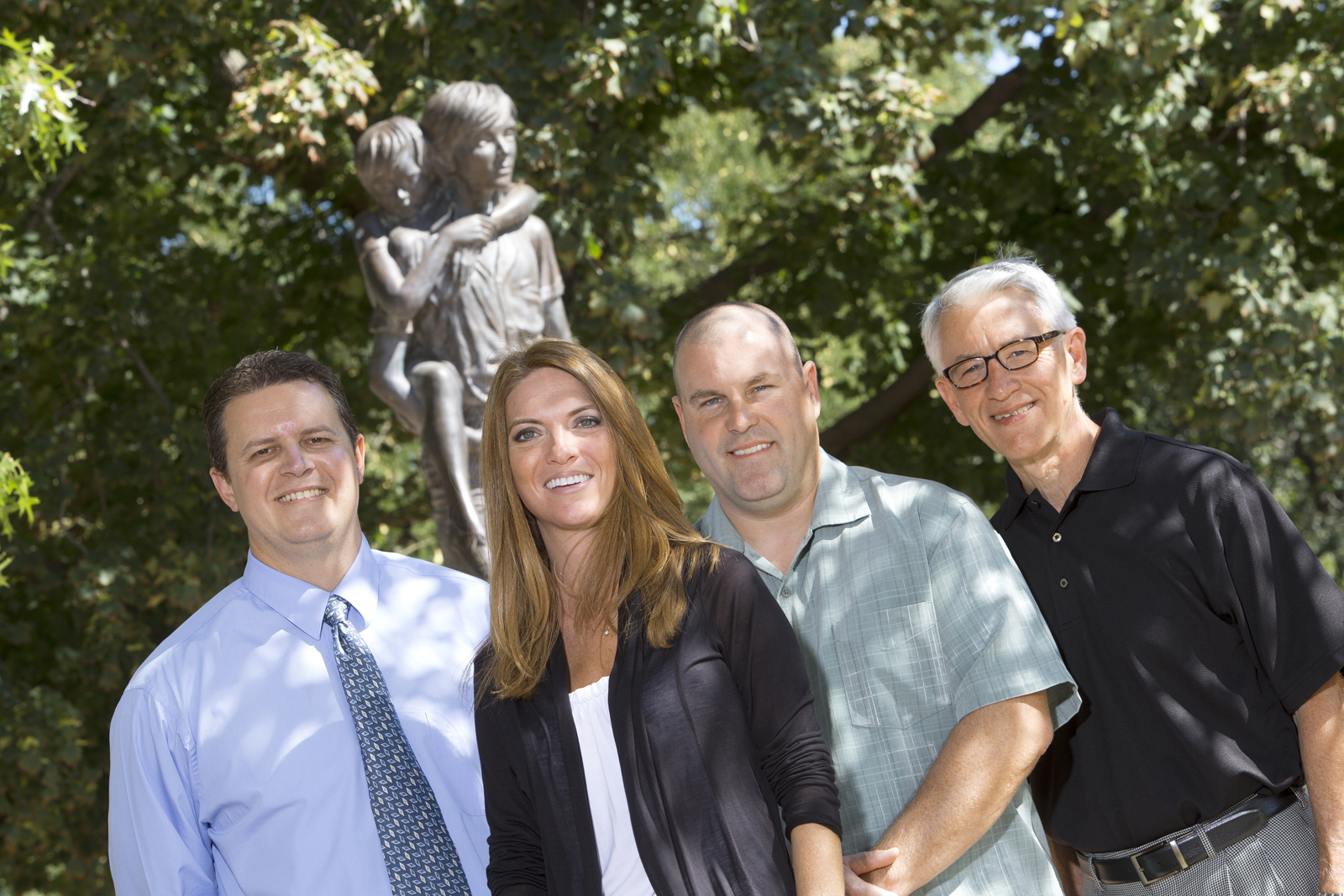
Teenage kids "kind of get lost in the system." They're almost adults, and not really needing to be protected like babies or young children — or so it may seem.
Special education researcher Alexandra Trout of UNL disagrees with this conventional attitude and wants to take a fledgling program nationwide. A $3.5 million grant from the Department of Education's Institute for Education Sciences will help her and a team of researchers, educators and family service workers from UNL, Boys Town, and surrounding Lincoln and Omaha agencies intervene to help special-needs teenagers and their parents be successful at home and school.
Trout's program, "On the Way Home," is family-centered academic aftercare services targeted to older children served in out-of-home care. Many of the children have learning or educational behavior disabilities. Many are at risk because of poverty, psychological distress, limited parent involvement or educational support.
They are at risk for becoming school dropouts or academic failures — or worse.
"Children who transition from out-of-home care back to the home tend to fall apart because few services are available to support them," said Trout, associate research professor at UNL's Center for Child and Family Well-Being.
The new grant will prove the efficacy of the On the Way Home program and replicate its model for other agencies. On the Way Home consists of three evidence-supported interventions: "Check and Connect" — a dropout prevention intervention program; "Common Sense Parenting" — a parent training program; and homework support.
All services are provided by a Boys Town family consultant over a one-year period starting shortly before the youth leaves care. UNL is partnering with Boys Town National Research Institute on the clinical research. Other Lincoln and Omaha area agencies participating include Cedars Home for Children in Lincoln, Christian Heritage, NOVA Treatment Community in Omaha, OMNI Behavioral Health in Lincoln and Omaha Home for Boys.
"We are excited to continue this important work helping children return home to their families and schools from out-of-home care," said Patrick Tyler, clinical director for Boys Town. "The children, families, and schools have confirmed for us the value of supporting these youth through this oftentimes difficult transition. On the Way Home provides an important service, at the right time, so these children can sustain the gains they've made."
Preliminary findings suggest that with On the Way Home support, more than 91 percent of youth maintained their placement in the home/community setting at the end of a 12-month intervention, as compared to just under 65 percent of the youths not receiving these supports.
Similarly, for youth receiving On the Way Home support, approximately 89 percent had either graduated or were still enrolled in school as compared to less than 52 percent of the youths not receiving support.
The grant-supported project will evaluate youth outcomes at a larger scale, and extend the services to additional agencies serving youth in out-of-home care. There are nearly a half-million children and youth served nationally in out-of-home care. Reintegrating into the home and school setting following out-of-home placements presents even greater challenges for the estimated 30 percent to 85 percent who are also diagnosed with a disability.
As many as 500 Nebraska youths are in out-of-home care, and many more in foster care. Trout said she believes On the Way Home could eventually benefit children in foster care as well.
The research team will also be able to look more carefully at factors that mediate and moderate success in the program, as well as educational, family, and behavioral outcomes, she said.
"We've already received calls from across the country from agencies wanting to adopt this program," Trout said. "Agencies are hungry for it. They have such an emotional attachment to these kids. They don't want to see them go home and fall apart. That is heartbreak for service providers."
Working with the child's school administrators and teachers, with continuing support from the out-of-home agencies, supporting the parents, working with and monitoring the child's success helps the child from becoming "lost," Trout said.
"Many of the children in out-of-home placement, in addition to having high mobility rates, have high rates of learning disability or emotional behavioral disorders that may never have been properly diagnosed or treated," she said.
The grant comes after eight years of UNL research to identify populations, obtain data, and build intervention and treatment plans. Many of the early participants in pilot projects already have gone on to be happy and successful.
"If we can help a youth complete their education and get started in college, we've affected so many people other than just that one child. These effects last lifetimes," Trout said.
The funding will provide three family counselors, supervision, project staff and graduate assistants. After four years, Trout will use evidence from the project to try for more funding.
— Kelly Bartling, University Communications